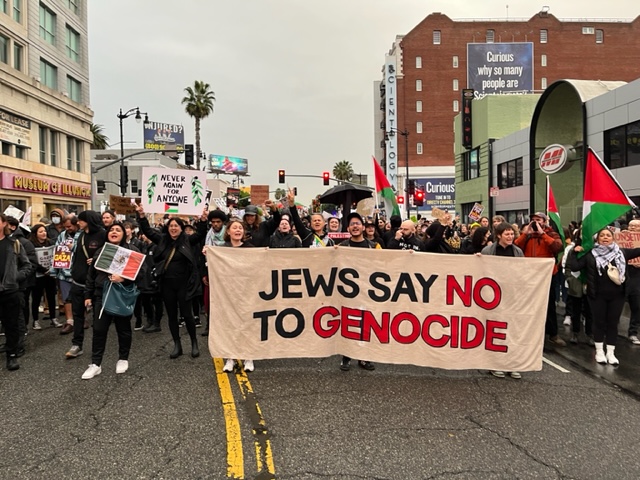In late September 2025, a delegation of nearly 250 state lawmakers from across the United States arrived in Israel under the banner “50 States One Israel.” The gathering, organized with the support of Israel’s Ministry of Foreign Affairs, marked what officials described as the largest-ever delegation of U.S. elected state representatives to visit the country. Legislators from all fifty states traveled to Jerusalem and beyond, walking through historic religious landmarks, visiting southern towns scarred by Hamas attacks, planting trees in Park Ofakim, and pledging support for closer state-level ties, including new efforts to legislate against the Boycott, Divestment, Sanctions movement. For Israel, the spectacle was a powerful show of solidarity: a reminder that, despite shifting global opinion, the political heartland of America was still prepared to stand with it.
Yet the timing of this delegation casts a long shadow. Only days earlier, the United Nations Commission of Inquiry issued its most damning assessment to date, declaring that Israel’s conduct in Gaza constitutes genocide. The commission concluded that Israeli authorities, including senior figures in Prime Minister Benjamin Netanyahu’s government, had not only overseen mass destruction and civilian suffering but also engaged in incitement that met the threshold of the 1948 Genocide Convention. Israel has rejected the findings outright, dismissing them as politically biased. But the accusations reverberated globally, sparking renewed debate over accountability, humanitarian law, and the obligations of states that continue to supply Israel with military and diplomatic backing.
Against this backdrop, the visit by hundreds of American lawmakers feels less like a neutral act of cultural exchange and more like a carefully orchestrated statement. For the Israeli government, it provides optics of resilience and legitimacy at a moment of intensifying international condemnation. For critics, it raises urgent questions about complicity. Not a single lawmaker chose to cross into the West Bank or seek access to the afflicted communities of Gaza. Their itinerary was entirely one-sided, curated by Israeli officials, and devoid of encounters with Palestinian civilians enduring the devastation. That absence is itself a message: by ignoring the victims named in the UN genocide report, the delegation made clear which side of the conflict it was endorsing. It was not neutrality, but solidarity with the very state accused of perpetrating mass atrocity.
The questions do not end with politics—they extend into the domain of international law. Under the Genocide Convention, every signatory state has a binding duty not only to refrain from committing genocide but to prevent and punish it wherever there is a serious risk. The International Court of Justice has affirmed that this obligation is universal: no state can remain passive in the face of genocide. If the UN’s findings are upheld, then allies providing weapons, financial aid, or diplomatic cover to Israel could face accusations of complicity. Even symbolic gestures of support, such as highly publicized delegations, may be seen as lending legitimacy to actions that international investigators say amount to atrocity crimes.
This is not merely a matter of moral judgment but one of potential legal liability. International criminal law recognizes that aiding and abetting genocide is itself a prosecutable crime. Officials who knowingly provide material, logistical, or political support that facilitates genocidal acts could, in principle, face investigation before bodies such as the International Criminal Court. The United States has not ratified the Rome Statute, but universal jurisdiction in foreign courts could expose officials to legal challenges abroad. In the 2007 Bosnia v. Serbia ruling, the ICJ held that even failure to act when one has influence over a party committing genocide constitutes a breach of international obligations. That precedent looms heavily over Washington and its allies today.
For the state lawmakers participating in “50 States One Israel,” the legal exposure may seem distant. They do not control arms sales or foreign aid budgets. Yet their presence bolsters Israel’s claim of international backing at the very moment a UN body accuses it of genocide. By refusing to meet with Palestinian victims, or even to acknowledge their plight, these lawmakers have chosen to place themselves firmly on the side of the accused. The symbolism is not ambiguous—it is solidarity with the perpetrators, not the afflicted.
Inside the United States, the symbolism of the delegation is already shaping discourse. State lawmakers, though lacking federal power, embody grassroots political legitimacy. Their endorsement of Israel may translate into a wave of anti-BDS legislation across statehouses, reinforcing ties at the subnational level even as federal policy grows increasingly fraught. But this, too, risks deepening the divide between international law and American politics. By strengthening ties without acknowledging the genocide findings, U.S. officials—federal and state alike—may be eroding the very legal architecture designed to prevent atrocities.
For Palestinians in Gaza, the consequences are devastatingly real. Entire neighborhoods lie in ruins, food and medicine are scarce, and families are displaced in staggering numbers. The UN’s charge of genocide is not abstract—it describes the lived reality of millions. Yet while Gaza suffers, images of American legislators shaking hands and planting trees dominate headlines, leaving one narrative highly visible and the other silenced.
The collision of these stories—solidarity in Jerusalem, condemnation in The Hague—captures the contradictions of the moment. On one hand, Israel cultivates foreign delegations to affirm its legitimacy; on the other, the international community is confronted with allegations of its most serious crime. For the United States, the stakes are immense: to support Israel uncritically now risks crossing the line from allyship into legal complicity in genocide.
What happens next will determine not only the trajectory of the Israeli-Palestinian conflict but also the credibility of international law itself. If states ignore their obligations under the Genocide Convention, the precedent may be one of impunity, weakening the ability of the international system to deter future atrocities elsewhere. “50 States One Israel” was intended to showcase unity, but it may instead be remembered as the moment when the world was forced to confront whether solidarity can excuse silence in the face of genocide—or whether silence itself becomes part of the crime.





